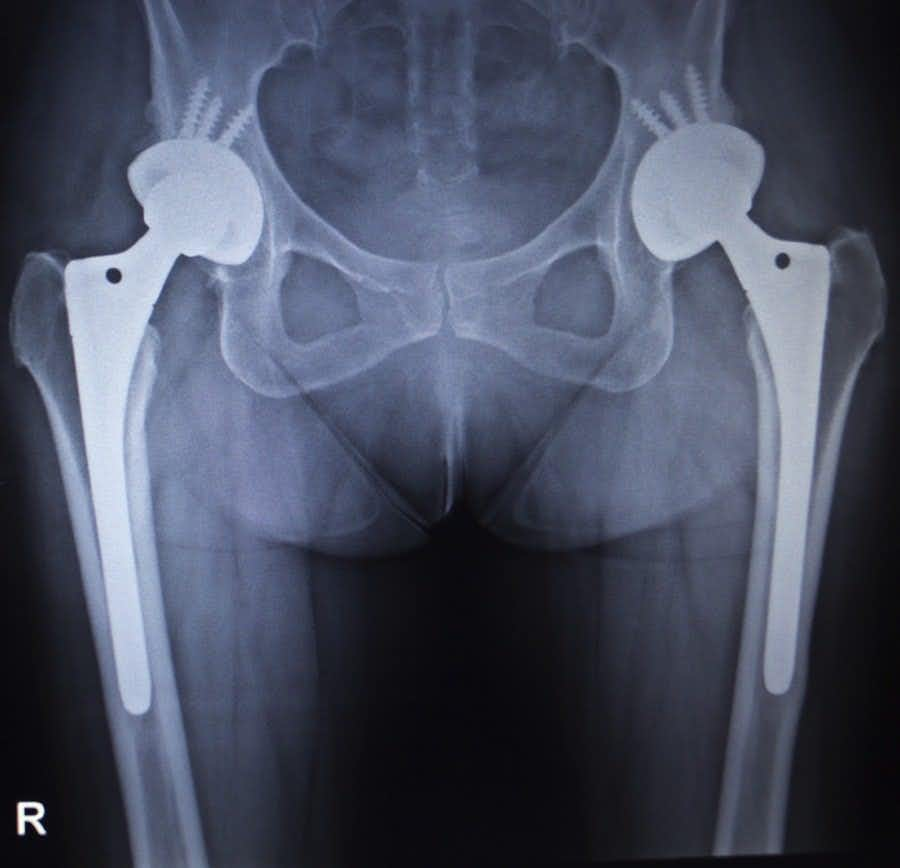
People who undergo hip or knee replacements are at high risk for developing blood clots during the first several weeks after surgery. How serious is this complication? A research paper published in Current Opinion in Pulmonary Medicine (Sept. 2002) noted that: “Elective total hip and total knee arthroplasty surgeries are associated with an extraordinarily high incidence of asymptomatic venous thromboembolism (VTE). Symptomatic deep vein thrombosis (DVT) or pulmonary embolism (PE) is diagnosed in only 2%-4% of these patients.” That is why orthopedic surgeons frequently prescribe anticoagulants to prevent such life-threatening blood clots. But which is better for this purpose, aspirin or drugs like Xarelto (rivaroxaban)?
Comparing Aspirin to Xarelto (Rivaroxaban):
Canadian researchers wanted to know whether a pricey anticoagulant called Xarelto (rivaroxaban) was significantly better than aspirin at preventing thromboembolism after knee or hip replacement surgery (New England Journal of Medicine, Feb. 22, 2018). Here is how they justified this study:
“Aspirin is an inexpensive, generic, and widely available antiplatelet drug. Clinical trials and meta-analyses have suggested that aspirin may be effective for the prevention of venous thromboembolism postoperatively, but comparisons with direct oral anticoagulants are lacking. We reasoned that aspirin, because of its efficacy, low cost, and well-established side-effect profile, was potentially a good choice for extended prophylaxis after total hip or total knee arthroplasty.”
The Study:
This double-blind, randomized, controlled trial was carried out at 15 university-affiliated health centers in Canada. Over 3,400 patients who had undergone such procedures were given Xarelto for the first five days after their operations. Then, half of them were randomly assigned to continue taking Xarelto while the other half got low-dose aspirin instead.
The Results:
After three months there was no significant difference between the two groups with respect to blood clots. Here, in their own words, are the outcomes reported by the investigators:
“During the 90-day follow-up period, symptomatic proximal deep-vein thrombosis or pulmonary embolism developed in 11 of 1707 patients (0.64%) in the aspirin group and in 12 of 1717 patients (0.70%) in the rivaroxaban group.”
The authors note that aspirin was no better or worse than Xarelto (rivaroxaban).
The Price:
Xarelto costs over $400 a month. Low-dose aspirin would have cost less than a dollar. The authors note:
“In our trial, we found that the inexpensive, widely available generic agent aspirin was not significantly different from the more expensive, direct oral anticoagulant rivaroxaban for the prevention of symptomatic, clinically important venous thromboembolism after total hip or total knee arthroplasty among patients who had received an initial 5-day postoperative course of rivaroxaban. The patients in the two trial groups had low and very similar rates of symptomatic thromboembolic complications during the 90-day follow-up period after randomization (0.64% with aspirin and 0.70% with rivaroxaban, for a difference of 0.06 percentage points…”
What About Hemorrhage?
Surgeons justifiably worry about bleeding after anticoagulant therapy. They do not want their elegant surgery to be undone by hemorrhage. The patient walks a tight rope. On one side are blood clots that can be life threatening. On the other, there are bleeding episodes that can also be very dangerous. The Canadian researchers paid close attention to concerns about hemorrhage.
The authors report:
“Rates of clinically important bleeding complications were less than 1.5% and did not differ significantly between the two groups. All the bleeding events occurred at the surgical site….However, there were suggestions of more major and clinically relevant nonmajor bleeding among patients in the long-term aspirin subgroup, particularly among those who had been assigned to the aspirin group and hence were receiving a second daily dose of aspirin prophylaxis.”
The authors note that it is hard to determine whether the bleeding events were related to the first five days of Xarelto after surgery or the addition of extra aspirin.
What to Make of This Study?
We are grateful to the Canadian Institutes of Health Research for funding this study. In the U.S. we often have to rely on drug company-funded research. Not surprisingly, there are not a lot of head-to-head trials between pricey new medicines and old, inexpensive drugs. This government-sponsored trial raises intriguing questions about new-generation anticoagulant medications, at least for patients getting knee or hip replacement surgery.
Patients should never stop taking an anticoagulant on their own. This new study should allow people to have a thoughtful conversation with their orthopedic surgeon prior to joint-replacement surgery.
Want to Learn More?
We have written about Eliquis (apixaban) and Xarelto (rivaroxaban) side effects at this link:
Some Eliquis and Xarelto Side Effects NOT in the Prescribing Info
You may find some of the comments from visitors to this web site of interest.
Share your own story about Xarelto or Eliquis in the comment section below.

